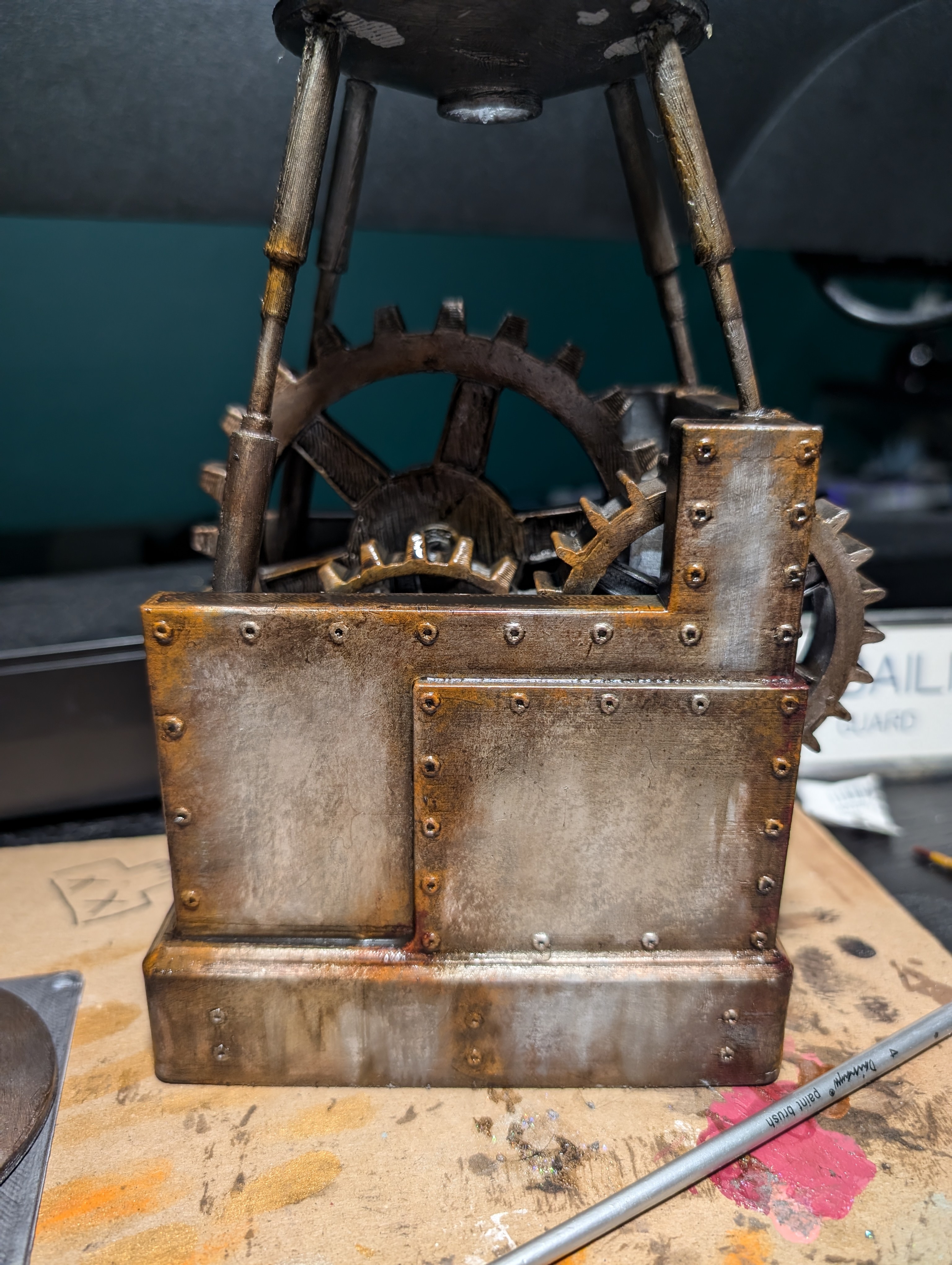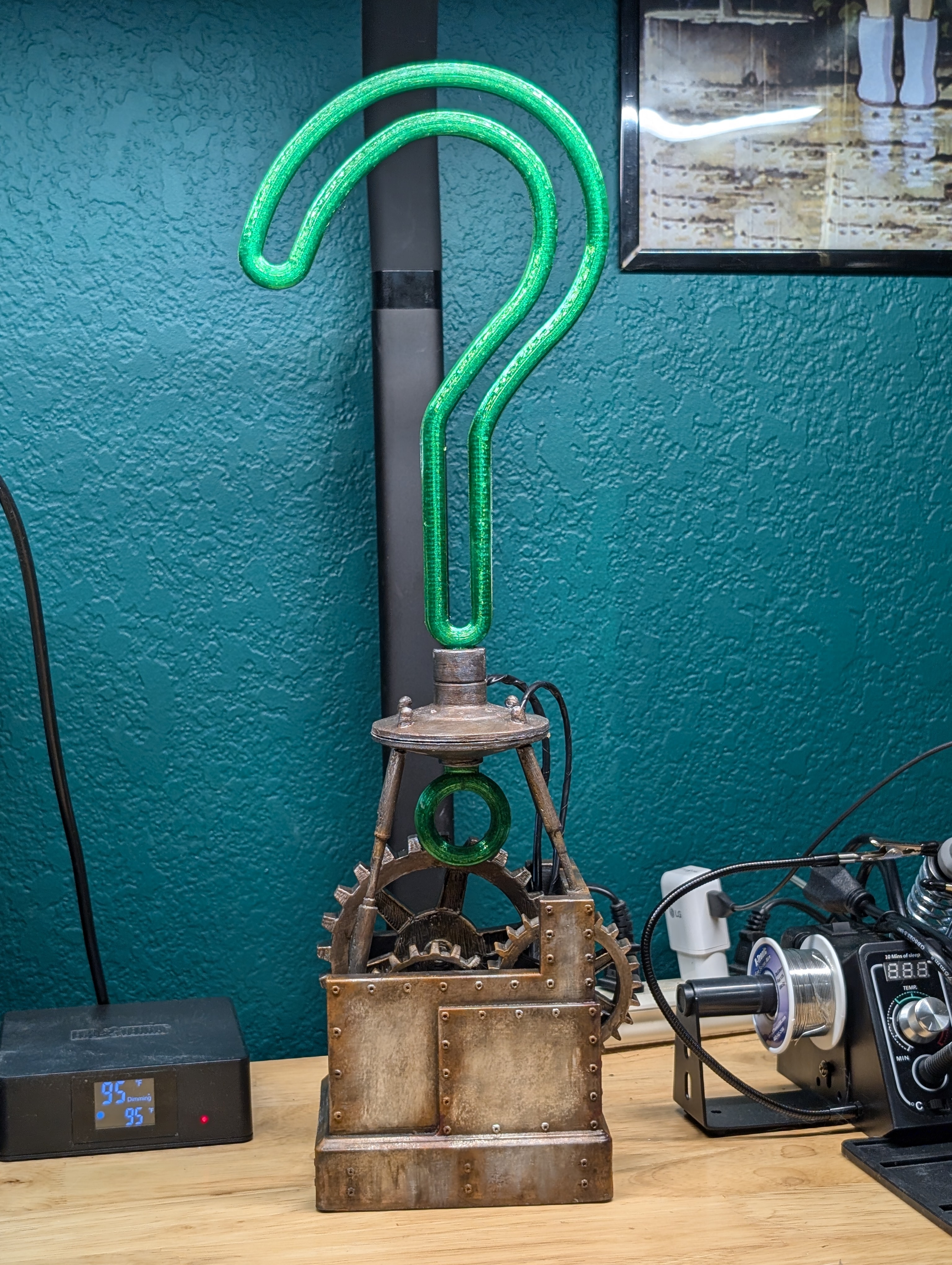If you're willing to pay for premium, Proton supports custom domains and catch-all addresses, so you can cut out all the extra mail relay stuff. Just give out [email protected], and it all comes back to the same mailbox. If it gets compromised, just set up a rule to trash anything to that address.
PiJiNWiNg
PORK CHOP SANDWICHES
Awesome! I resin printed some batarangs myself! I did four different styles from different movies, then picked up a shadowbox frame and some red velvet and mounted them vertically with some wire. I ended up giving that to my younger brother as well, lol.
So now this satellite can be an "anomaly" for another satellite, and the circle of life continues...
Gave it to him today and he was stoked! Also figured id post a detail shot of the base:

Of course! But it's all filament, specifically PETG. 🙂
Not sure id say "prefer" as i don't have experience with many others, but i used rustoleum sand and fill primer from amazon
Just realized i should probably share the STL link in case anyone wants to make their own: https://www.thingiverse.com/thing:4245103
Its translucent green filament with green EL wire run through it, with the battery pack stored in the base.
I was about to put in my two weeks notice I when i had to run out to one of our sites to update the firewall. Fortunately, i happened to have a 3d printed "dick-o-saur" in my backpack, and placed him atop the rack before taking new photos for documentation.

Thank yoy so much! I actually lay out the method step-by-step in one of the comments. 🙂